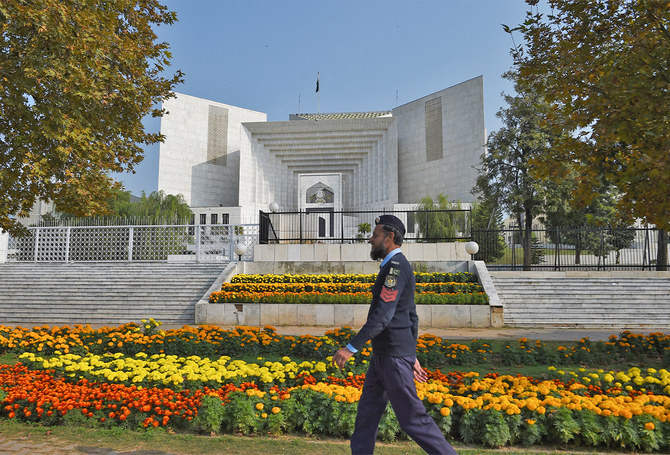
The Supreme Court has observed that it is the responsibility of the state to ensure the fundamental right to a fair trial, as provided for under Article 10-A of the Constitution, even in a master-slave power equation wherein the latter enjoys the constitutional right of due process.
Authored by Justice Mohammad Ali Mazhar, a verdict issued by the apex court emphasised that the state had the responsibility to ensure equitable and just rights between employer and employees, eliminate all forms of exploitation and provide for all citizens facilities of work and adequate livelihood with reasonable rest and leisure, within the available resources of the country.
The observation came on a petition filed by a bank whose management had directed the employees to deposit around Rs2 million penalty awarded by State Bank of Pakistan (SBP) to the petitioner’s bank for violating standing instructions. A division bench of the apex court led by Justice Sardar Tariq Masood heard the matter and rejected the petition.
The judgement explained that the “master and servant” is an archaic legal phrase meant to describe the relationship of employer and employee which arises out of an express contract of service which may contain certain terms and conditions agreeable to the parties.
According to the verdict, the general rule is that the master may hire and fire the services of the servants. The amount of compensation is ordinarily regulated by an agreement. The lawsuits encompassing the relationship of master and servant in fact lead to the claim of dismissed or terminated employee for an award of damages/compensation against wrongful dismissal or termination.
Justice Mazhar observed in his judgement that the employees, who are covered under the definition of workers or workmen, may approach the labour courts or NIRC, while civil servants may approach the service tribunal and if the employee is covered and governed under the statutory rules of service then such employees may file constitution petition under Article 199 of the Constitution.
Read Judiciary ‘can’t assume role of lawmakers'
However, in the case or category of employees who are neither covered under the labour laws nor the Civil Servants Act nor having any statutory rules or regulations of service, they may, due to lack and nonexistence of statutory remedy or statutory rules of service, can only file a civil suit for the satisfaction of their claims including the damages/compensation for wrongful dismissal
“The court also said that the relationship of master and servant is not meant for mere exploitation. Laws exist to protect the fundamental human rights of the members of society. The function of the court is to do substantial justice and not to knockout or nonsuit the party on technicalities.”
It further said: “At this juncture we would like to quote a very celebrated phrase that 'law is made for man and not man for the law.'"
The judgment said that the SC has already made it amply visible that due to non-statutory service rules and in case of no other equally efficacious and adequate remedy, the aggrieved employee can only file a civil suit for redressal of his grievance.
The court said that the philosophy and standards of the master and servant relationship was premeditated to regulate relations between employers and employees during the 18th and 19th centuries.
"The United Kingdom Act 1823 described its purpose as the better regulations of servants, labourers and work people. This particular Act greatly influenced industrial relations and employment law in the United States, Australia (1845 Act), Canada (1847 Act), New Zealand (1856 Act) and South Africa (1856 Act). These Acts were generally regarded as heavily biased towards employers, designed to discipline employees and repress the combination of workers in trade unions.”
It said that the aforesaid law required the obedience and loyalty from servants to their contracted employer with infringements of the contract punishable before a court of law often with a jail sentence of hard labour.
"It was used against workers organizing for better conditions from its inception until well after the first United Kingdom Trade Union Act 1871 was implemented which secured the legal status of trade unions," the judgement recalled.


















COMMENTS
Comments are moderated and generally will be posted if they are on-topic and not abusive.
For more information, please see our Comments FAQ